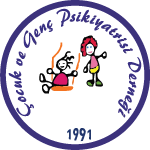ABSTRACT
Enhanced cognitive behavioral therapy, which deals with eating disorders with a trans-diagnostic approach, is a treatment procedure with a protocol of 20 or 40 sessions consisting of 4 stages. Because the diagnostic categories of eating disorders evolve over time and the underlying mechanisms are common, enhanced cognitive behavioral therapy uses specific strategies and procedures in a structured format in the treatment of each. Enhanced cognitive behavioral therapy is a psychotherapy procedure tailored entirely to the psychopathology of eating disorders and not to a specific category of eating disorders (such as anorexia nervosa or bulimia nervosa). It focuses on the perpetuating factors rather than the basic psychopathology of eating disorders. Within the 20-session treatment protocol, the first 2 sessions are reserved for evaluation. During the evaluation stage, all problem areas necessary for correct conceptualization are reviewed. The purpose of stage 1, which is applied in 2 sessions per week and will last for 7 sessions in total, is to ensure participation in treatment, create individual conceptualization, teach journaling, psychoeducation, placing weighing’s in the session and providing a regular eating plan. In stage 2, which is applied in 2 sessions once a week, development and conceptualization are reviewed. Again, once a week, in stage 3, which is applied 8 sessions, core mechanisms are studied by using individual conceptualization. The last 2 sessions are applied at intervals of 2 weeks and work is done on the preservation of the developments and the prevention of recurrence. This article will provide detailed information about the 4 stages of enhanced cognitive behavioral therapy and the basic concepts, strategies and procedures used.



